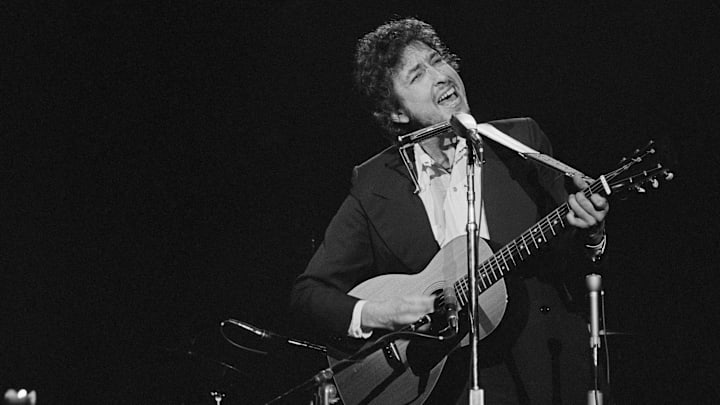“I Got a Name” by Jim Croce (1973)
Trust me, I do wish I could assure you that Jim Croce will be the last of the great folk singers on this list who died tragically young. At least Croce, unlike many of the others, did enjoy a great deal of popular success before he died in a plane crash in 1973 at the age of 30. The crash occurred one day before the release of “I’ve Got a Name,” the title single from his final album. In part because of the tragedy, Croce’s albums You Don’t Mess Around with Jim and I Got a Name pulled the rare feat of claiming the top two spots on the Billboard albums chart at the same time.
Would “I Got a Name” become so beloved had it not been so inextricably linked to the tragedy? Perhaps not. Nonetheless, it remains a lovely anthem – affirming life and independence despite whatever life throws in your path. The single was successful on the charts, but in an odd twist, it was probably stymied somewhat by the release of an older song – “Time in a Bottle” – from an album he had recorded two years earlier.
“Time in a Bottle’s” chorus – “But there never seems to be enough time to do the things you want to once you find them” – was eerily prophetic, and it grabbed the public consciousness, rising to number one on the charts. With “I Got a Name,” Croce, who typically wrote his own material, turned to pop songwriters Norman Gimbel and Charles Fox for a message that is far more optimistic than what we have been hearing in most of these more somber folk songs.
“Return of the Grievous Angel” by Gram Parsons (1974)
All right, I promise, this is the last of the songs by an icon who died tragically young. And I have to make one small admission. You see, this is a country song. It has a fiddle, a pedal steel guitar, and country singer Emmylou Harris prominently harmonizing. Before deciding to restrict my country list to one year – 1973 – this song was in that article.
Parsons recorded it, along with the rest of his final album, in 1973, right in the heart of that country explosion. But the album and song were not released til the following year. By that point, Parsons was dead. He was 26. His death and its bizarre aftermath is a story in and of itself and one best told at another time.
For now, we will just say that Parsons, the restless, innovative genius who left his mark on three significant bands before going solo, tells a marvelous, sprawling tale of traveling the country only to return to his love – “Twenty thousand roads I went down, down, down – And they all led me straight back home to you.” Harris, who rises from background singer to virtual duet partner on the album, adds dimension to the sound. The song is a perfect intro to a virtually perfect, ultimately tragic album.
“I Want to See Bright Lights Tonight” by Richard and Linda Thompson (1974)
This list has a woeful lack of artists from the UK. That’s largely due to the author’s limitations. So far, Nick Drake has been the only representative from outside the USA. Richard and Linda Thompson are the second and third. Richard Thompson co-founded the seminal British folk outfit Fairport Convention in the ‘60s before leaving to pursue a solo career in the early ‘70s.
Fairport Convention soldiered on, but their fortunes mirrored that of folk music in general. Highest popularity in the late ‘60s, and then dwindling success throughout the 1970s, so that by the end of the decade, Fairport Contention called it a day.
The Thompsons, however, were still going strong. Richard met Linda while he was still in FC, and then he had her sing background in his first solo effort. By the second one, I Want To See Bright Lights Tonight, she was receiving co-billing. She was also his wife. Richard is a spectacular guitar player, and Linda has one of the most truly beautiful voices in British music. They are both gifted songwriters.
It all came together in the album’s title track. Richard plays electric guitar on the track, and it is a virtually perfect specimen of folk rock. Linda sings. There are horns and accordions adding flourishes throughout. It is a glorious homage to going out and having fun, and it is one of the oldest songs that Richard plays in all of his shows. Less than a decade later, the duo would use the concept of “lights” in a very different way. Their final album together, “Shoot Out the Lights,” is among the greatest breakup albums of all time.
